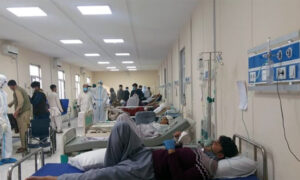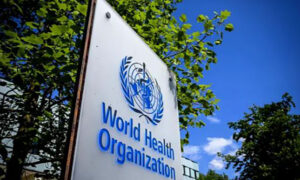Health
Congo fever cases rise 38% in last two months in Afghanistan
The Public Health Ministry’s spokesman said in the first five months of this year, 203 positive cases of Congo fever and six deaths were recorded across the country

On the eve of Eid al-Adha, the Ministry of Public Health has announced that cases of Crimean-Congo Haemorrhagic Fever have increased by 38 percent in the last two months across the country.
The Ministry of Public Health said that last year there were about 244 positive cases of Congo fever, of which about 100 patients died.
Sharaf Zaman, the spokesperson of Public Health Ministry, added that in the first five months of this year, 203 positive cases of Congo fever and six deaths were recorded throughout Afghanistan.
According to him, Congo fever cases have increased by 38% in the last two months.
“It is very important to allow at least fifteen minutes for the blood to drain completely after slaughtering the animals on Eid days"
Congo fever is carried by domestic animals and can be transmitted by ticks. It is found in Africa, Eastern Europe and Asia. Symptoms include headaches, back pain, vomiting, severe bruising and nosebleeds.
“It is very important to allow at least fifteen minutes for the blood to drain completely after slaughtering the animals on Eid days. Then cover the blood on the ground with soil or wash it with soap, powder or only water. After skinning the animal, the skin should be put in a plastic bag immediately,” said Faridullah Omari, a medic.
According to medics, to prevent the spread of Congo fever, infected people should be quarantined and they should avoid contact with healthy people.
RELATED STORIES
Kunduz health officials report 28 cases of Congo fever, and 3 dead
WHO says 47 died from Crimean-Congo fever in Afghanistan in past six months
Health
Herat Regional Hospital struggling to deal with heavy patient load
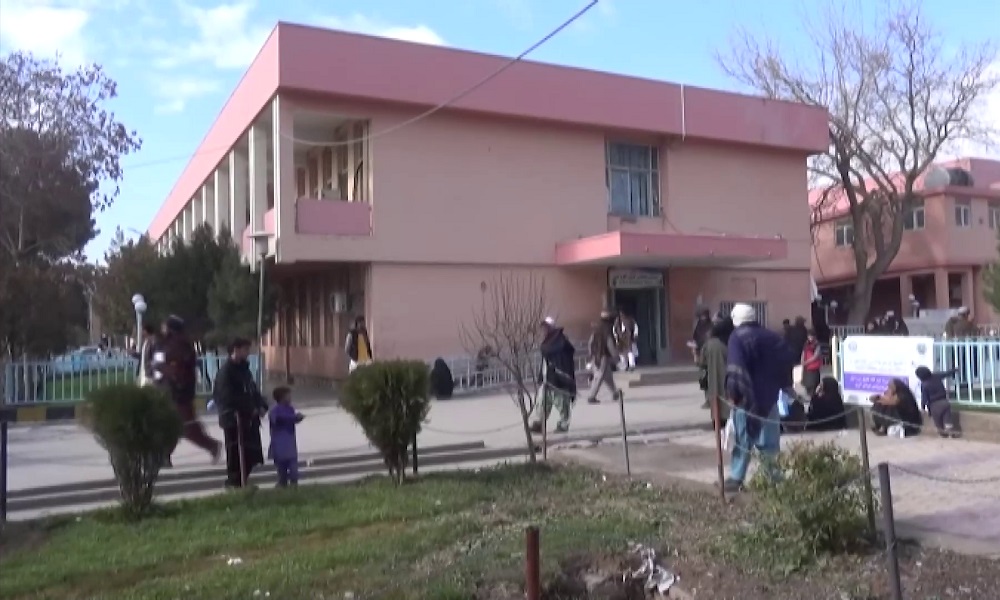
Herat Regional Hospital has a capacity to treat about 1,000 patients a day, 650 as in-patients. However, the hospital is being stretched to its limits and is treating more than double this number of people every day, hospital officials say.
Officials say that in most wards, there are two patients per bed. They say the hospital needs to expand - that they urgently need more space and more equipment.
According to doctors, the High Care Unit has only 10 beds, when it actually needs at least 65. In addition, they say the dialysis department is only running at half-mast. It has 17 dialysis machines, but only eight are in working order.
Herat residents have also raised concern over the state of the hospital and said some departments, especially the dialysis unit and pediatrics urgently need equipment and additional space.
Afghanistan is grappling with significant health challenges marked by a fragile healthcare system and unequal access to services, particularly in rural areas.
This is due to a number of issues such as transportation difficulties, shortage of healthcare professionals, and limited access to quality healthcare services.
Despite efforts to improve the country’s healthcare infrastructure, Afghanistan continues to grapple with systemic issues that hinder effective healthcare delivery. Analysis by UN agencies of under-served areas shows that 13.2 million people in 34 provinces reside in areas where primary healthcare services are not accessible within a one-hour walking distance.
Health
Excluding Afghan women from medical institutes threatens the future of health care in the country: MSF
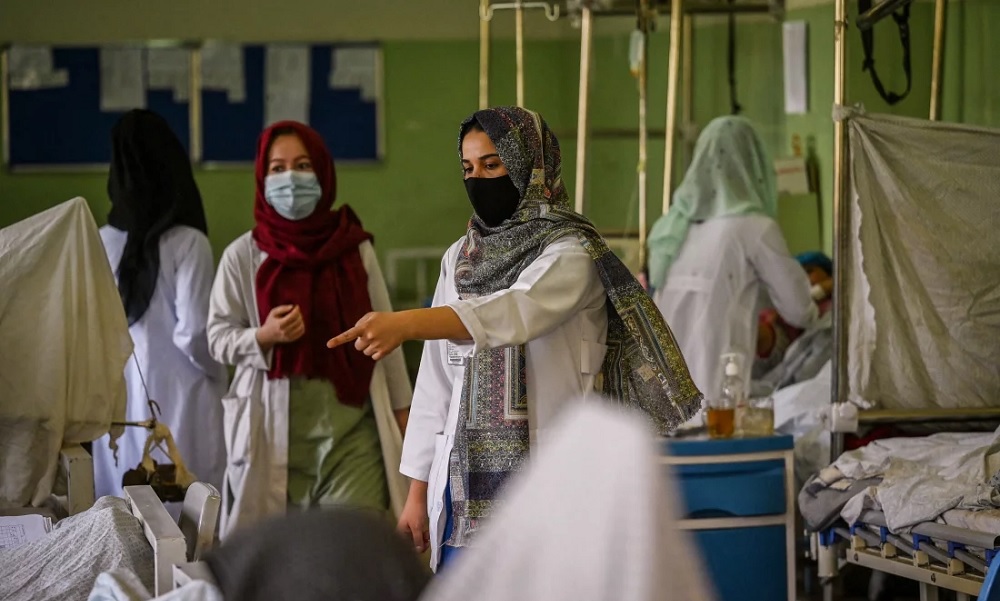
The Islamic Emirate of Afghanistan’s (IEA) decision to bar women from studying in medical institutes will have far-reaching consequences for women’s health in the country, Médecins Sans Frontières (Doctors Without Borders) said on Friday.
This is another stage in the removal of women from public and professional life in Afghanistan. Already, there is an insufficient number of female health care workers in the country, impacting the availability of health care, especially given the separation of hospital wards by gender. New constraints will further restrict access to quality health care and pose serious dangers to its availability in the future, MSF said in a statement.
“There is no health care system without educated female health practitioners,” said Mickael Le Paih, MSF’s country representative in Afghanistan. “At MSF, more than 50 percent of our medical staff are women. The decision to bar women from studying at medical institutes will further exclude them from both education and the impartial provision of health care.”
The medical needs in Afghanistan are huge, and more female Afghan medical staff need to be trained to address them. For this to happen, women need to have access to education. Education restrictions for women and girls put in place in 2024, 2022, and 2021 considerably reduce the number of female medical staff in the future, MSF said.
“If no girls can attend secondary school, and no women can attend university or medical institutes, where will the female health professionals of the future come from and who will attend to Afghan women when they are at their most vulnerable?” said Le Paih. “For essential services to be available to all genders, they must be delivered by all genders.”
Recently, there have been reports that the leader of the Islamic Emirate has ordered the closure of medical institutes to women. The Islamic Emirate has not yet officially commented on this matter.
Health
Afghanistan’s health minister visits disease control center during China visit
Jalali, in China for the World Conference on Traditional Medicine 2024, said that traditional medicine in Afghanistan needs to be regulated and integrated into modern healthcare practices
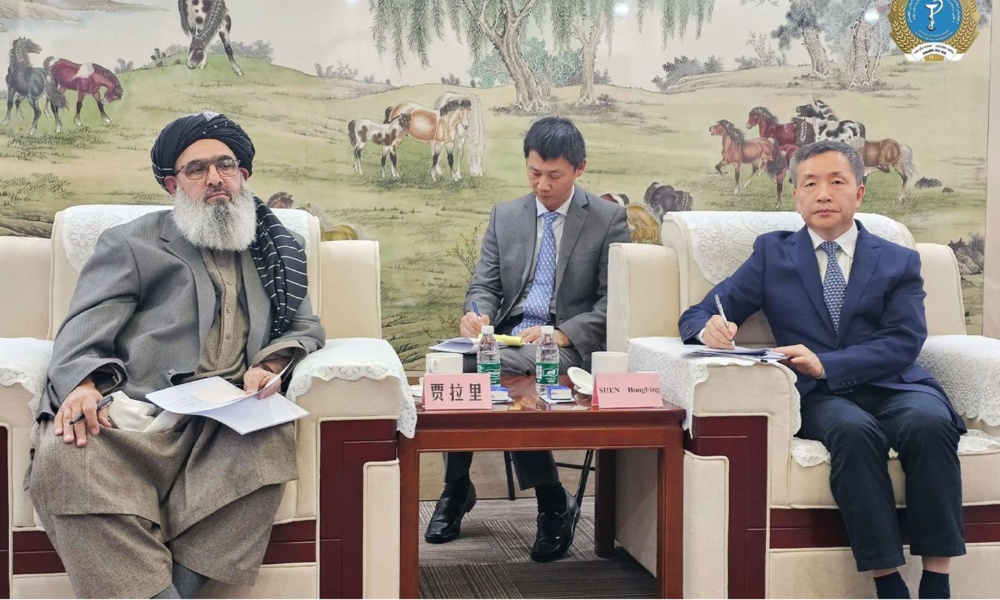
Afghanistan’s Acting Minister of Public Health has held in depth discussions on managing diseases such as malaria, tuberculosis, and polio with China’s Deputy Director for Disease Control and Prevention, Shen Hongbing.
On an official visit to China, Mawlawi Noor Jalal Jalali also discussed other issues, with Shen and other officials, such as monitoring of diseases, disaster management processes and capacity building for Afghan healthcare workers.
Jalali, who was in China for the World Conference on Traditional Medicine 2024, also toured China’s Disease Control and Prevention Center (CDC) and its National Influenza Center.
The conference, which was held on Tuesday and Wednesday in Beijing, was jointly held by the World Health Organization (WHO) and Chinese sponsors, including China’s National Health Commission.
The opening ceremony of the two-day event was attended by health officials of governments and international organizations, experts and scholars, and deputies from medical institutions.
WHO Director-General Tedros Adhanom Ghebreyesus gave a speech via video.
Addressing delegates at the conference, the ministry cited Jalali as having said that traditional medicine in Afghanistan needs to be regulated and integrated into modern healthcare practices.
He also advocated for strengthened bilateral cooperation between China and Afghanistan to enhance capacity building, experience sharing, and joint research in the sector.
Afghanistan’s health ministry has meanwhile established a Traditional Medicine Department which is currently tasked with formulating policies and guidelines to regulate and improve this sector.
-

 Sport5 days ago
Sport5 days agoLanka T10: All three matches abandoned due to rain
-

 Latest News5 days ago
Latest News5 days agoIndia hoping to import coal and marble from Afghanistan
-

 Sport4 days ago
Sport4 days agoZimbabwe’s opening ODI against Afghanistan abandoned
-

 Latest News5 days ago
Latest News5 days agoJapan announces $27.5 million aid package to Afghanistan
-

 Latest News1 day ago
Latest News1 day agoAfghan men must stand with women to support viable future of country: US envoy
-

 Latest News3 days ago
Latest News3 days agoTwo horror accidents on Kabul-Kandahar highway leave 52 dead
-

 World3 days ago
World3 days agoNorth Korean troops suffer 100 deaths, struggling in drone warfare, South Korea says
-

 International Sports4 days ago
International Sports4 days agoLanka T10: Kandy Bolts in at 4th spot in playoffs after thrilling day

